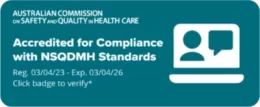Accessibility Tools
- Content scaling 100%
- Font size 100%
- Line height 100%
- Letter spacing 100%
The SANE Blog

Functional neurological disorder: the silent illness
Functional neurological disorder – formerly called conversion disorder – is more common than multiple sclerosis yet remains a little-known condition in both the medical community and the general population.
The exact cause of FND is unknown, but it involves a problem with the body's nervous system. Historically, the onset of FND was associated with physical or emotional trauma, although many people living with FND don't report a history of trauma.
Symptoms can include motor dysfunction, seizures, vision and speech difficulties, and paralysis. FND is classified as a mental health condition but because it involves both neurology and psychiatry, it can take a long time to be correctly diagnosed.
Dr Katherine Gill is the President of FND Australia Support Services, a non-profit committed to the health and wellbeing of people living with functional symptoms. She asked members what they wished people knew about the disorder.
They said . . .
FND is not all in our heads
The disorder impacts us physically and mentally.The symptoms are very real and every symptom is actually happening.
It's like an off switch
'My legs would start feeling numb, my whole body would start twitching; I couldn't speak. My whole body would stop functioning. It's like an off switch where you suddenly can't control your movements or anything you're doing.'
It changes quickly
Our movements and mobility can fluctuate from minute to minute.
FND is poorly understood
FND can have the same debilitating symptoms as seen multiple sclerosis, Parkinson's disease and epilepsy, yet many health professionals lack knowledge and understanding of this condition. This can result in a lack of appropriate treatment, reduced support and feelings of isolation, and lead to enormous distress.
There's significant stigma
'From an arm that shakes constantly, from just tapping to uncontrollable, huge movements; legs that don't work; pain, uncontrollable emotions, not wanting to go out because of how people look at you or the fear of having a seizure in public.'
It affects family
Family and friends need knowledge, understanding, help and support. Lack of understanding and acceptance by family and friends increases the feelings of isolation. FND doesn't just affect our lives; it can have a major impact on our loved ones.
FND hits suddenly, without warning
None of us knew this could or would happen to us.Virtually overnight, our life changed and becomes so hard that even getting out of bed can be tough.
It can become isolating
FND can destroy a person's ability to work; socialise; make plans; and participate fully in life. It becomes a very lonely and isolating illness.
Rest is important
'I recognise now that my body needs more rest than the average person. I can't work 9 to 5 like my friends and family. Initially I couldn't accept my limitations, but now I remind myself to treat my condition with care and stop comparing myself to others and society's expectations when they lack understanding about this mysterious condition.'
FND is a silent illness
People are suffering and struggling every day, and no one knows how long it will take to recover from the illness, or if we will ever recover.
Family support is crucial
'It has been a roller coaster ride.I have had to resign from my employment, leave my friends, and move to Brisbane for treatment. There were times when l just wanted to crawl up into a ball and shut the whole world out, but I get through with the love and support from my family.'
By accepting you will be accessing a service provided by a third-party external to https://www.sane.org/










